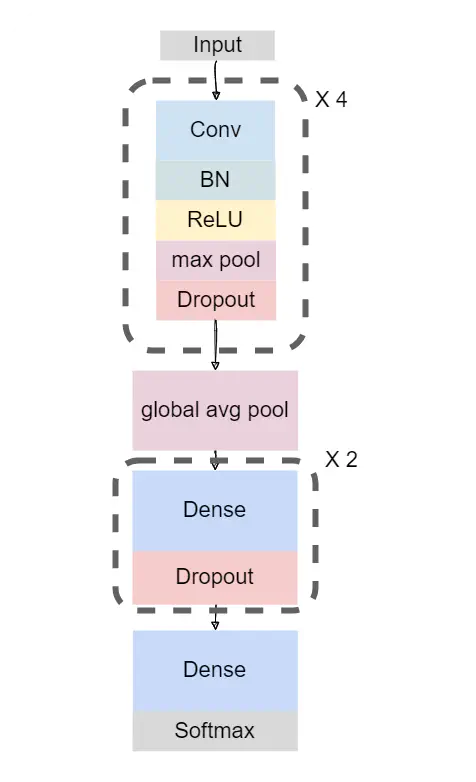ECG-Lense: Benchmarking ML & DL Models on PTB-XL Dataset
 ECG-Lense Model
ECG-Lense ModelAbstract
Automated classification of electrocardiogram (ECG) signals is a useful tool for diagnosing and monitoring cardiovascular diseases. The process can be aided by the use of machine learning (ML) and deep learning (DL) techniques. This study compares three traditional machine learning algorithms (Decision Tree Classifier, Random Forest Classifier, and Logistic Regression) and three deep learning models (Simple Convolutional Neural Network (CNN), Long Short-Term Memory (LSTM), and Complex CNN (ECG-Lense)) for the precise classification of ECG signals from the PTB-XL dataset. This dataset has 12-lead ECG recordings from normal patients and patients with various cardiac conditions. The DL models were trained on raw ECG signals, allowing them to automatically extract important features. Additionally, data augmentation techniques were used to enhance model performance increase the diversity of training samples, and maintain the essential characteristics of the ECG signal data. The models were thoroughly evaluated using multiple metrics, such as precision, recall, F1-score, and ROC-AVC. The results indicate that the Complex CNN (ECG-Lense) model surpassed the other algorithms with an 80% classification accuracy and a 90% ROC-AUC. This research not only highlights the best heart ECG-based classification model but also sheds light on the strengths and limitations of the machine and deep learning methods in this area. Healthcare professionals can utilize these findings to automate ECG interpretation and enhance patient care strategies. Additionally, the comparative analysis paves the way for future research to create more advanced and specialized models for specific cardiac conditions, ultimately leading to the early detection and effective management of heart-related disorders.